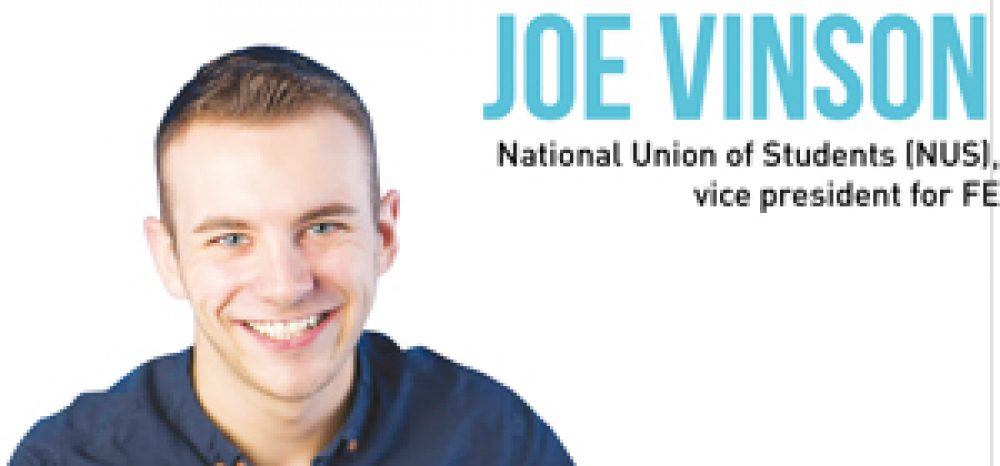Learners have been discussing key policy directions for the NUS. Joe Vinson discusses what’s been on the agenda and what happens next.
The NUS held its annual Zone Conference in Harrogate earlier this month. The event is an important part of our policy formation process and an opportunity for students from across the country to come together to discuss the issues which will form motions to NUS’s National Conference in April.
The NUS splits its work in to five separate ‘zones’. In Harrogate, students from the further and higher education zones were brought together to discuss vocational education.
It was the first time that the FE and higher education zones had come together to debate and form policy which concerns the whole tertiary sector. This was because we wanted to be more joined up in our policy formation this year and to talk about vocational provision across schools, colleges and universities.
In picking vocational education as a key theme we recognised that skills and the future of technical education are at the fore of current political debate.
Vocational qualifications have never been more important to the economy and to students. They deliver the trained, talented employees businesses are crying out for and ensure young people have the skills needed to succeed in education and work.
We wanted to give students the opportunity to voice their opinions on how vocational education is delivered and provide their experiences of studying in academic or vocational settings.
On the first day of the conference students were divided in to four areas of vocational education — teaching and learning, gender and access, tensions between vocational and academic education and the space in which vocational education is delivered.
Within these sub groups we talked about issues such as the impact of class structures and the perceived social stigma around technical courses and qualifications. We also used practical methods to think about the space in which academic and vocational education courses are delivered.
Students modelled their ideal learning environments and were encouraged to consider in what type of setting they can learn best.
All these discussions will eventually feed in to the motions which go to NUS’s National Conference and also inform the work which takes places throughout the year.
Aside from the vocational education key theme, FE delegates attended workshops on issues such as the quality of teaching and learning, careers information advice and guidance, sex and relationships education and the general election.
Students explored the different methods of teaching across the FE sector and particularly focused on the use of technology in the classroom and the proportion of learning which should be delivered via technology
The session on teaching and learning asked students to think about their own good and bad experiences in the classroom. The students explored the different methods of teaching across the FE sector and particularly focused on the use of technology in the classroom and the proportion of learning which should be delivered via technology.
The conference also held a session for all delegates on NUS’s general election strategy and the hub which has recently been launched to help students’ unions form their local election strategies.
The ‘New Deal for the next generation’ manifesto outlines three key areas that students are most affected by, with ten policy ‘asks’ under each area.
The FE asks include a call for political parties to commit to a new education maintenance allowance, a call for the AS-level to be retained in its current form and a recommendation for statutory careers guidance to be stronger and for careers education to be embedded in the curriculum.
We have seen cut after cut after cut for the FE sector over the last few years and we want to make students a force too powerful to be ignored.
This is why it is so vital that FE students get registered to vote, get mobilised and demand from all the major parties that FE is properly invested in.









Your thoughts